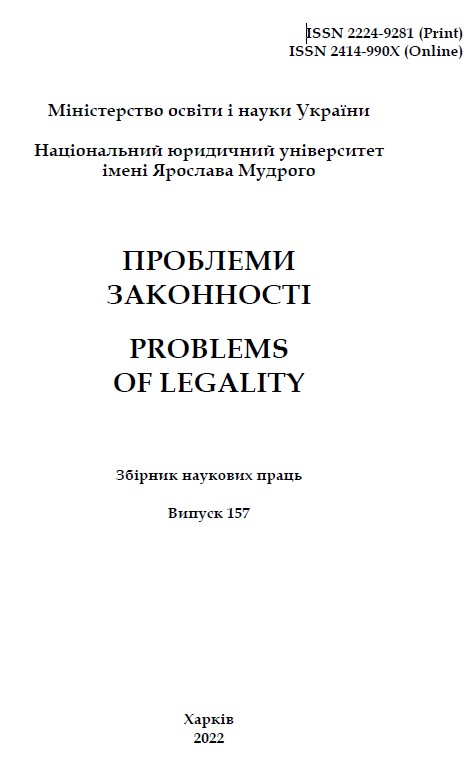Поважність причин неявки позивача в судове засідання як кваліфікуюча ознака залишення позовної заяви без розгляду: de lege lata i de lege ferenda
Validity of reasons for the plaintiff’s default at trial as a qualifying feature of leaving the statement of claim without consideration: de lege lata i de lege ferenda
Author(s): Uliana VorobelSubject(s): Civil Law
Published by: Національний юридичний університет імені Ярослава Мудрого
Keywords: plaintiff; default; trial; valid reasons; leaving the statement of claim without consideration; decision; civil proceedings;
Summary/Abstract: The features of leaving the statement of claim without consideration in connection with the repeated plaintiff’s default as the nature of the reasons for his/her absence at trial are investigated. In particular, the degree of influence of their validity on the exercise of court powers to terminate proceedings without a court decision on the merits of civil claims is studied. Attention is paid to the necessity and expediency of taking into account the valid reasons for nonappearance of the plaintiff and (or) his/her representative in determining the legal consequences of his/her default at trial. In particular, applying to the institution of leaving the statement of claim without consideration, on the grounds provided for in paragraph 3 of Part 1 of Art. 257 of the Civil Procedure of Ukraine, which will ensure the balance of interests of the plaintiff and the defendant in the proceedings: the plaintiff will be guaranteed the possibility of practical exercise of his/her right to a fair trial, and the defendant will be protected from excessive delay of the case. The provision that the validity of reasons for the plaintiff’s default at trial should remain an evaluative category is substantiated. It is decided by the court in each case separately, taking into account a combination of such factors as 1) the nature of the circumstances preventing the plaintiff’s appearance at trial; 2) the proof of their existence by appropriate and admissible evidence; 3) the degree of influence of these circumstances on the impossibility of the plaintiff’s appearance at trial; 4) the impossibility of using other alternates (regimes) of participation at trial; 5) the preliminary behavior of the plaintiff and (or) his/her representative in the case, the complexity of the case, the quantitative characteristics of the court hearings in the case, the total duration of the civil proceedings, etc. If the court, taking into account the above-mentioned criteria, finds such a circumstance to be unreasonable for the plaintiff’s default at trial, the court should argue the reasons for such a decision on each of these criteria, which would ensure the objectivity and validity of the court interpretation of such a legal construction as “the validity of the reasons for default at trial”.
Journal: Проблеми законності
- Issue Year: 2022
- Issue No: 157
- Page Range: 74-92
- Page Count: 19
- Language: Ukrainian

